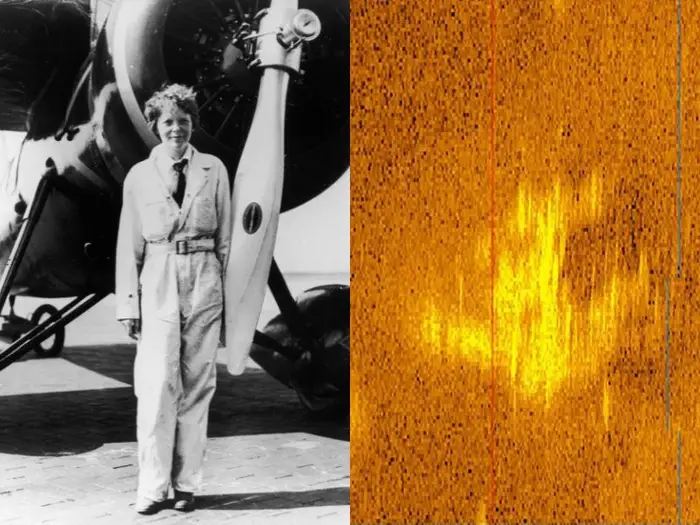During the month of February, Black History Month is celebrated to honor and commemorate the achievements and milestones set by Black inventors, activists, authors, doctors, entrepreneurs, and many more.
In a time when education was limited for Black Americans, teachers and social reformers Booker T. Washington and William Edward Burghardt DuBois paved the way for African American prosperity and advancement, particularly in two very opposing ways. Despite their controversial opinions and public rivalry, they brought new perspectives to the fight for civil rights and shared a common goal of recognition and equality for Black Americans alike.
Booker T. Washington

Washington was born into slavery on April 5, 1856 in Westlake Corner, Virginia. After emancipation, he and his family moved to Malden, West Virginia. Determined to receive an education after a childhood of poverty and labor work, Washington enrolled himself at the Hampton Normal and Agricultural Institute, working as a janitor to offset the fees.
Washington graduated from Hampton Normal and returned to teach in Malden for a short period of time, studied at Wayland Seminary, and eventually was offered a new teaching position back at Hampton Normal.
After a successful run at Hampton, he was selected to head a brand new school for African American students in Tuskegee, Alabama. The building was decrepit and poorly funded with no supplies or equipment for student use. Unbeknownst to Washington at the time, this building would serve as the foundation of his career, massively growing to 100 units, 1,500 students and 200 teachers by the end of his life.
While he worked as an educator, Washington became nationally recognized for his publicized opinion on African American prosperity. During the post-reconstruction era, he preached that instead of taking violent action for civil rights, Black Americans should focus on bettering their industrial skills and study the elements of patience and enterprise.
Washington believed that only after demonstrating their dedication and investment within the skills they excel at, Black Americans would gain the respect and privileges from white people and further their economic status. In the meantime, they were expected to embrace the division and ignore the effects of segregation.
Having grown up in the South, Washington had a better understanding of Black southerners and was familiar with their circumstances, willing them to rally behind him. He did not receive the same appreciation from Black northerns. Many disagreed with his controversial philosophy because it was an opinion that seemed to only appease the white race, and was seen as a step in the wrong direction for Black prosperity. The homogenous conclusion at the time was to establish equality and break racial barriers, both temporarily overshadowed by Washington’s idea.
Despite the controversy of his beliefs, Washington gained a recognizable following and continued to enhance the foundation of Tuskegee University. Built shortly after his death on November 14, 1915, Booker T. Washington high school in Atlanta, Georgia was the first public secondary school for Black children in the nation, and served as the only Black high school until 1947.
WEB Du Bois

Remembered for his valiant dedication toward African American equality, W.E.B Du Bois was a man who strived for nothing less than equal rights, demonstrated through his progressive writing in the Niagara Movement and involvement within the National Association for the Advancement of Colored People (NAACP).
W.E.B Du Bois was born a free man on Feb. 23, 1868 in Great Barrington, Massachusetts. Raised by a single mother, Du Bois was a first generation graduate of high school and college. He attended and graduated from Historically Black Institution Fisk University, and continued his education at Harvard University.
After teaching sociology at both Wilberforce University in Ohio and Atlanta University, he was offered a position at Booker T. Washington’s Tuskegee University. Tension surrounded their interactions, and Washington’s beliefs enticing to white Americans clashed with Du Bois’ strong value for protest and purposeful action that would inspire change. This motivated Du Bois to abandon the position and join Washington’s rivals in the Niagara movement.
Although the Niagara Movement was unsuccessful, Du Bois was able to publish the very first magazine for African Americans called “The Moon Illustrated Weekly” and produced 34 issues during the movement. In 1910, he accepted directorship for the newly created NAACP, and moved his family to New York to work as an editor for its monthly magazine.
Du Bois did not only disagree with Washington’s views. He promoted an opposing perspective on certain works of abolitionist Frederick Douglass that claimed that Black Americans needed to integrate with white society in order to encourage equality. Du Bois thought instead that Black people should keep to themselves to preserve the culture of their communities.
Additionally, Du Bois published articles in favor of unionized labor, exposing unions for deterring Black membership. The journal attracted thousands of individuals’ interest, reaching 100,000 members in 1920 and led to significant growth of the NAACP.
Towards the end of his life, he created a new, ambitious project developing an encyclopedia on the African diaspora funded by the Ghanaian government. At 93 years old, Du Bois himself moved to Ghana to oversee the project’s progress, and became an official citizen in 1961. Du Bois died in Ghana on August 27, 1963, just a day before the historic March on Washington.
Although these two educators shared very distinct and separate ideologies, they held similar philosophies including the fight against racially motivated violence and the importance of knowledge and education provided to people of color. Integrating into society under very different circumstances, their viewpoints stemmed from the same aspiration; for Black Americans to be treated as equal to their white counterparts.
Visit these links to learn more about Booker T. Washington and W.E.B Du Bois and their contributions to the Black history.
https://www.britannica.com/biography/Booker-T-Washington
https://www.history.com/topics/black-history/w-e-b-du-bois
https://naacp.org/find-resources/history-explained/civil-rights-leaders/web-du-bois







